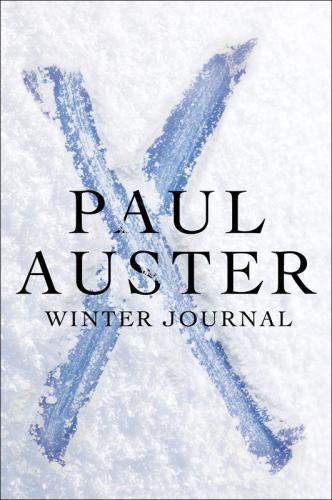
Winter Journal
کتاب های مرتبط
- اطلاعات
- نقد و بررسی
- دیدگاه کاربران
نقد و بررسی

Starred review from April 23, 2012
“You think,” begins Auster in this quietly moving meditation on death and life, “it will never happen to you.” But because this is not fiction and Auster (Sunset Park) is as human as the rest of us, “one by one, they all begin to happen to you, in the same way they happen to everyone else.” The things that happen and which he chronicles are both momentous and mundane, the stuff of everyday life—the childhood baseball games, the succession of New York and Paris apartments (21 in total), even the women longed for, two of whom became wives—and the events that shook and shaped him. From the vantage point of the winter preceding his 64th birthday, Auster lets his body and its sensations guide his memories. There is no set chronology; time and place bleed from one year to another, between childhood and adulthood. His mother’s death in May 2002 is one of the most deeply resonant sections, drawing on childhood memories of her as a Cub Scout den mother—though she’d entered the “Land of Work”—along with her slow decline after the death of her second husband, made all the more painful as Auster relays it in retrospect, after the reader knows his mother is dead. This is the exquisitely wrought catalogue of a man’s history through his body, a body that has felt pain and pleasure because “ body always knows what the mind doesn’t know.” Agent: Carol Mann.

Starred review from May 1, 2012
The acclaimed novelist (Sunset Park, 2010, etc.), now 65, writes affectingly about his body, family, lovers, travels and residences as he enters what he calls the winter of his life. Written entirely in the second person and, loosely, using the format of a journal (undated entries), Auster's memoir courses gracefully over ground that is frequently rough, jarring and painful: the deaths of his parents, conflicts with his relatives (he settles some scores), poor decisions (his first marriage), accidents (a car crash that could have killed him) and struggles in his early career. But there are summery memories, as well: his love of baseball (begun in boyhood), his fondness for Campbell's chicken noodle soup, his relationship with his mother, world travels (not all cheery; he recalls a near fistfight with a French taxi driver), books and friends. Most significant: his 30-year relationship with his wife, writer Siri Hustvedt (unnamed here), whom he continually celebrates. Some of the loveliest sentences in the text--and there are many--are illuminated by love. Near the end, Auster recalls visits with her family in Minnesota, a terrain so unlike what he knew (he lives in Brooklyn). Here, too, are moments of failure (not speaking up when he should have), of illness and injury, of sly humor. The author follows a grim description of a bout with the crabs with a paean to nature that begins, "Ladybugs were considered good luck." Auster indulges in the occasional rant--he goes off on the crudities of contemporary culture--and delivers numerous moments of artful craft. A consummate professional explores the attic of his life, converting rumination to art.
COPYRIGHT(2012) Kirkus Reviews, ALL RIGHTS RESERVED.

March 15, 2012
As might be expected of the brilliantly offbeat award-winning author of The New York Trilogy, this is not a standard retelling of life events. Instead, as he approaches his mid-sixties, Auster considers bodily pain and pleasure, the passage of time, and the weight of memory. High-minded readers will want.
Copyright 2012 Library Journal, LLC Used with permission.

Starred review from July 1, 2012
Austerphiles love the novelist-of-chance's vivid memoirs for the keys they provide to the mysteries, moods, and metaphysics of his haunting fiction. Here the Brooklyn-based author of the famed New York Trilogy and Sunset Park (2010) takes measure of his life over the course of a winter as he looks ahead to his sixty-fourth birthday. Auster tells himself to put aside your stories for now and try to examine what it has felt like to live inside this body from the first day you can remember being alive to this one. The result is an intensely sensuous account of strange and dramatic events punctuated by jazzy lists of everything from the places he's called home to his favorite foods. Auster's most piercing recollections are anchored to injury and illness, close calls and bad habits, age and the ghoulish trigonometry of fate. He remembers his mother with poignant precision; pays gallant tribute to his wife of 30 years, writer Siri Hustvedt; and writes ardently of his passion for baseball and books. Omitting his literary success, he portrays himself trapped in all but surreal sieges of rage, panic, and helplessness. Auster is startlingly forthright, mischievously funny, and unfailingly enrapturing as he transforms intimate memories into a zestful inquiry into the mind-body connection and the haphazard forging of a self.(Reprinted with permission of Booklist, copyright 2012, American Library Association.)

























دیدگاه کاربران